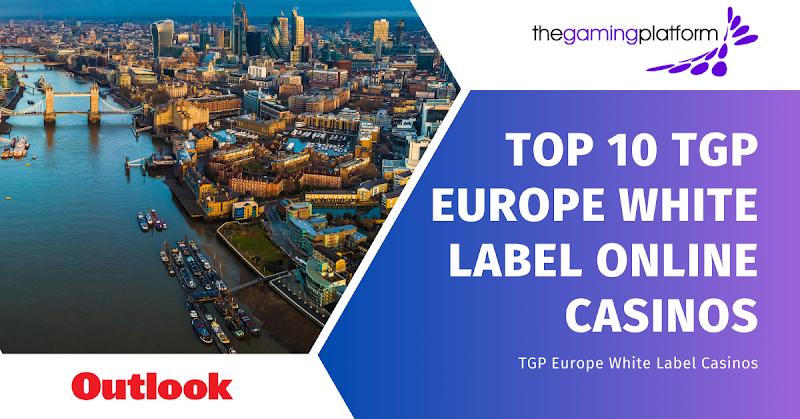Gambling
Combating Illegal Online Gambling Operations in Europe

The online gambling sector has experienced rather drastic changes in the past few years. First, there was a big boost during the years of the pandemic. Then suddenly, many European Union (EU) member states started seriously taking on illegal online casino operations in their countries. This, however, does not concern websites like Automatenspielex.com where one can play online slots for free without registration.
What has been for years more or less simply been tolerated by governments across the EU like Germany, The Netherlands, Austria, and many more countries quickly started to change. New laws were passed to get a grip on what has become an out-of-control kind of like Wild West situation.
The ultimate goal was to eliminate the gray area and set a clear line between legally and illegally operating online gambling providers. We are going to take a closer look at what the current situation is regarding illegal online gambling across Europe.
Understanding Illegal Online Gambling: What is the current legal situation regarding Online Gambling in the European Union?
Before we can go deeper down the rabbit hole, we need to step back and familiarize ourselves with the current legal situation in the EU. What is legal and what is illegal online gambling, and who determines what is what?
It is important to understand that there is no such thing as an international governing body that issues licenses and oversees online gambling across the EU. The European Court of Justice (ECJ) made it very clear in 2010 that gambling is a matter that falls into the jurisdiction of each member state.
In other words, that means that an operator has to apply for a license in each state where it wants to offer its services independently.
Take a Look at the Big Picture – How Big Is the European Illegal Online Gambling Market?
As there is no governing body for the entire EU, this question can only be answered by looking at each of the 27 member states separately. What is legal and what is not varies greatly as some countries, for example, France don’t allow any online gambling whatsoever except for online poker.
The newly founded German gambling governing body published that in 2020, 87% of all gambling in Germany occurred in the legal market. In the much stronger regulated Austrian market, however, it is estimated that 60% of all gambling activities are happening with an illegal operator.
Who Are the Illegal Operators and What Makes Their Online Gambling Operations Illegal?
As each EU country sets its own rules on definitions of legal gambling and what isn’t, it can be a bit confusing. It is no big secret that many illegal operators found a relative haven in the Netherlands Antilles. Curacao has become home to one of the biggest hubs for online gambling operators in the world. But they are not the only ones who are operating illegally across Europe.
As strange as it sounds, the absence of an EU-wide regulatory body leads to a paradox. Because gambling is not covered by the EU fundamental law of freedom of goods and services, illegal operators can basically be located in one’s neighbouring country. That is oftentimes the case with Maltese online casinos. Gambling became such an important factor in the Maltese economy that the local government even felt it needed protection and passed Bill 55, which is a clear violation of EU law.
What Tools do European Countries Have to Combat Illegal Operators?
It might appear so, but it certainly is not the case that national European regulators are forced to show up with a knife to a gunfight when they are combating illegal operators on their soil. They have a variety of tools in their toolbox, which can be but are not limited to those:
- IP blocking
- Payment Blocking
- Cutting off the traffic for certain websites
- Informing players which operator is legal and which is not by publishing black as well as whitelists
The Netherlands Are Currently Leading the Way in the Fight Against Illegal Operators
It was in 2020 at the height of the pandemic when Curacao turned to its homeland for help. The Dutch government granted financial help under certain conditions; one of them was that Curacao had to get a grip on the online casinos that were illegally operating in The Netherlands. As a consequence, the Curacao regional government announced a rather drastic reform of its licensing system, including further tightening the screws on anti-money laundering laws.
There are currently two big challenges for European Regulators
European regulators are fighting on two fronts against illegal online gambling. Besides trying to stay a step ahead of the illegal operators, they also have to deal with
Their Own Courts
The newly founded German regulator had a bitter lesson to learn in 2022. The governing body’s lawyers decided it was time to bring out the big guns against the illegal operators. They went to court and sued internet access providers demanding that they can and should be held responsible for the content of the websites. Unfortunately, the judges in the courthouses in Düsseldorf and Koblenz decided otherwise and ordered that the IP blocking has to be stopped immediately.
The Everyone Sets His Own Rules Problem
Another problem is the lack of unity and standards across the block. It can be very confusing for players to understand who is legal and who is an illegal operator. A common standards framework would make the fight against illegal operators much easier for everyone.
Do the member states of the European Union need a Governing Body that oversees all Online Gambling activity in the Block?
The big question, therefore, is not how to choose a slot machine but whether the EU member states need a regulatory institution that oversees online gambling across the block. If we would ask those who are fighting the fight the answer would most likely be a clear yes.
Sponsored
Thank you for taking the time to read this article. Do remember to come back and check The Euro Weekly News website for all your up-to-date local and international news stories and remember, you can also follow us on Facebook and Instagram.










